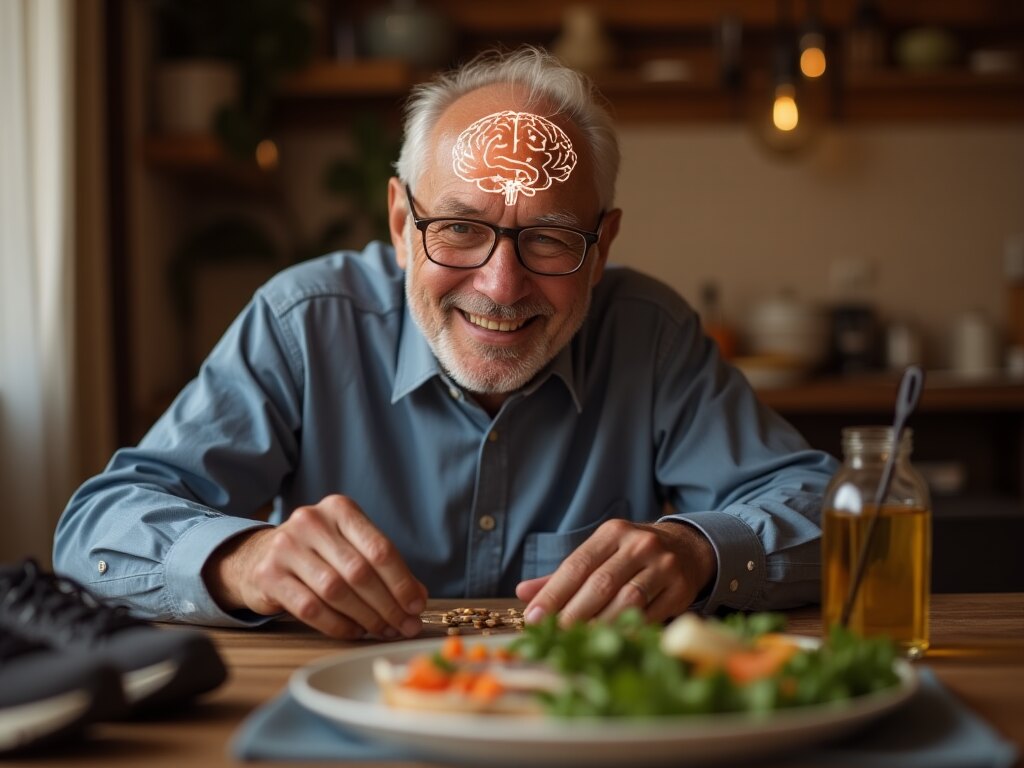
A Glimpse of Hope in the Fight Against Dementia
John at the age of 68 years and a retired teacher was losing himself. Names were forgotten. Routines were made into puzzles. The diagnosis by his doctor was early-stage dementia and it was a sort of life sentence. However, after two years the amazing thing occurred. His mind grew keener. He lost his confusion. How? Not even with a miracle pill but with a drastic change of life.
Dementia has been perceived in decades as an unavoidable deterioration. However, now, there is a revolutionary research that indicates that certain patients are not only halting mental decline, but they are erasing it. According to a study in Nature Aging, which only focuses on 2024, 15 percent of mild cognitive impairment (MCI) is measurably improved with specific metabolic interventions. Is it possible that even dementia in early stages is reversible than we previously believed?
The New Science of Cognitive Recovery: When the Brain Heals Itself
The notion that dementia would ever be curable was viewed as another wishful thinking. However, real life examples such as Johns- and a growing number of cases of research- are causing scientists to reconsider neurodegeneration- in particular the face that palliative care is definitely working, even when nothing is done.
Consider a classic Finnish study in the FINGER trial, which followed more than 1,200 older persons at risk. The participants that adhered to a strict diet, exercise training, and cognitive training program did not just stabilize they even regained some of their mental clarity. It helped one of the participants who was a former engineer and used to forget the birthdays of his grandchildren to become again able to solve difficult puzzles at the age of 70.
What goes on here? It appears that the brain is more resilient than it appears. Neurons can be revived by correcting insulin resistance and chronic inflammation as well as lack of blood supply.
Metabolic Health: The Missing Link in Dementia?
Is Alzheimer a Metabolic disease under a different name? It is now being referred to by some experts as Type 3 Diabetes- a brain-starved disease powered by bad glucose metabolism.
- A 2023 study carried out by MIT researchers revealed that ketogenic diets cut down the amyloid plaques in mice by a factor of 50.
- By investigating high blood sugar, researchers at Cleveland Clinic found out that they are killing the synapses, which leads to faster memory loss.
- The ReCODE Protocol developed by Dr. Dale Bredesen and involving fasting, in addition to healthy fats and specific supplements has successfully allowed the restoration of lost cognitive ability in patients within a six-month time frame.
Dr. Bredesen has been treating dementia as a closed door. Still, the answer was metabolism all this time.
The Lifestyle Prescription: 5 Ways to Fight Back Against Cognitive Decline
What are lifestyle changes that actually work as the lever of metabolic health?
- Eat As Though Your Brain Lives on It -The lowest inflammatory diets are Mediterranean and low-glycemic. A study discovered that olive oil and fatty fish reduced the possibility of dementia by 35 percent.
- Move Before You lose It – Just 150 minutes of brisk walking each week increases a protein called BDNF which repairs brain cells.
- Sleep Like It Is Medicine -Deep sleep removes the beta-amyloid, the harmful protein of Alzheimer. More than 6 hours? Your risk increases twice.
- Stress Less, Remember More-Stress long-term reduces the size of the hippocampus. It is reconstructed with yoga and meditation.
- Stay Social Or pay The Price Loneliness increases the rate of cognitive decline as quickly as smoking.
The Skeptics’ Take: Is This Too Good to Be True?
Naturally, not all people are convinced. Critics say that the majority of the so-called reversals occur either in early stage cases, or in cases which are mistakenly diagnosed.
- Up until now we cannot say we have a cure and Dr. Jason Karlawish (UPenn) warns, “We can t yet say cure. However, slower deterioration is success.”
- Advanced dementia is irreversible; this is why it is necessary to provide early treatment.
But facts continue to reach a crescendo. In a UCLA trial, 60 per cent of participants stopped deteriorating after making lifestyle changes. Why is it not the very first line of defense, when at least some cases could be improved?
Final Thought: A Radical Shift in How We Treat Dementia
And the story about John is not an accident, but a provocation. On the one hand, it is a fact that some dementia can be reversed by lifestyle changes. So why are we continuing to spend billions of dollars on drugs with minimal effects?
The number of cases of dementia will be three times higher by the year 2050. It is not simply the question “whether we can reverse it. but that question is, “Will we do something before it is too late?”
Your move.